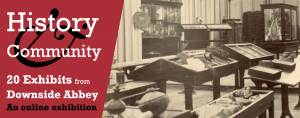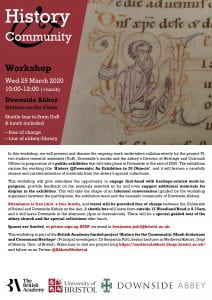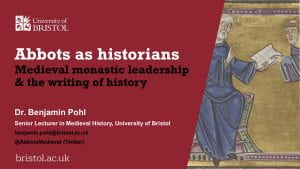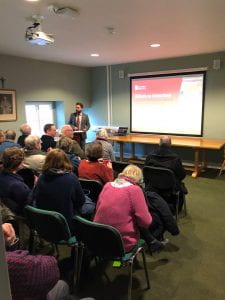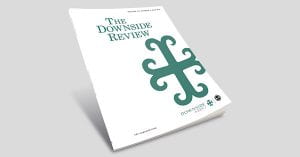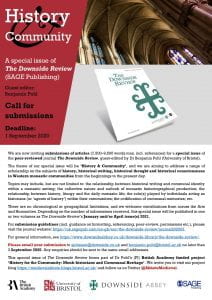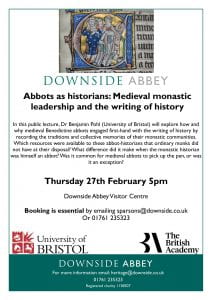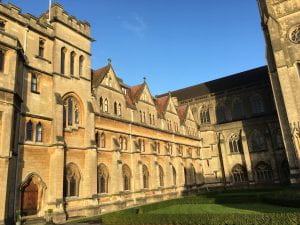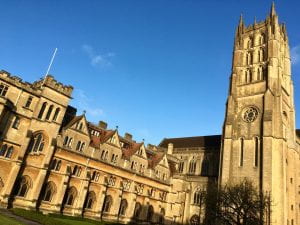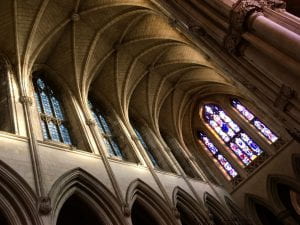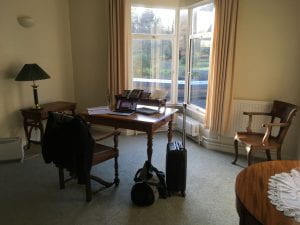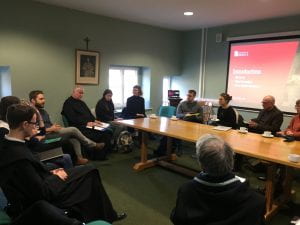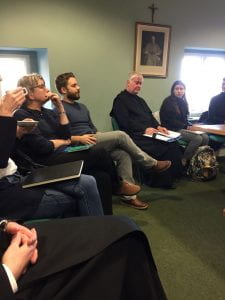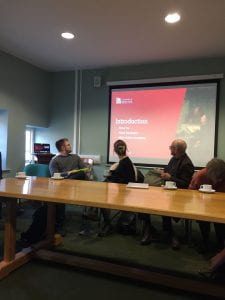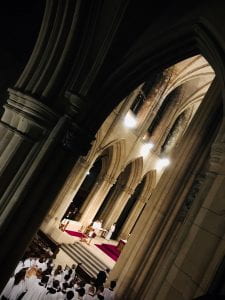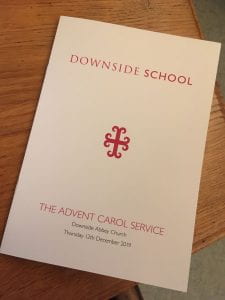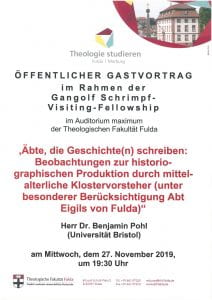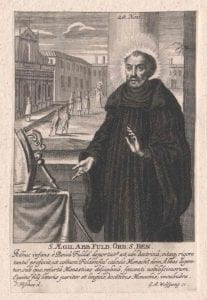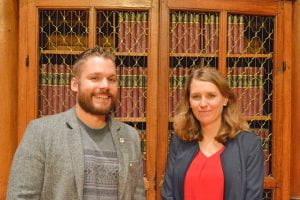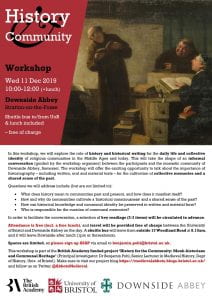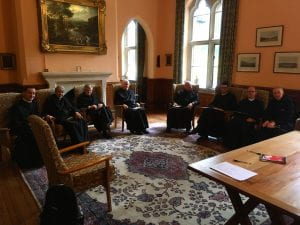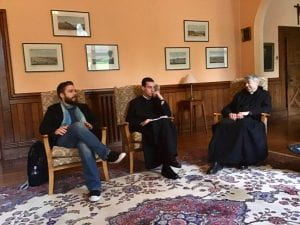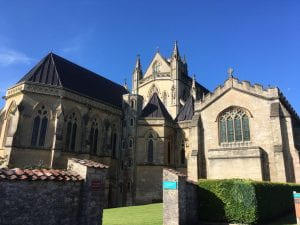Virtual launch event
Monday 30 November 2020, 5.00-6.30pm GMT.
Sign up via link at the bottom of this post.
History creates community, and community creates history. Being part of a community means sharing histories, and these histories leave traces that can be encountered long after the event. The experience of such encounters enables us to develop a sense of our past and to connect with our community’s history and identity.
A perfect example of this are the materials preserved at Downside Abbey, not only in its library, archives and special collections, but also dotted around the abbey complex. Together they expose a rich, outward-looking historical and cultural heritage that connects Downside with the history of its neighbourhood, the Southwest region, the British Isles, Germany, Austria, France, Italy, the Vatican, Russia and even Australia.
Featuring twenty carefully curated exhibits rarely or never displayed before, this online exhibition presents a vibrant panorama of the community’s heritage from Roman settlements in Somerset to medieval German monasteries, and from Russia at the eve of the Revolution to the beaches of Dunkirk in World War II.
All exhibits were chosen and curated through close collaboration between Downside’s community and a team of academic researchers from the University of Bristol under the direction of Dr Benjamin Pohl. The virtual launch event will include talks by Dr Pohl and the project team, a live demo of the exhibition website plus a Q&A session.
Registration (free of charge) is required in advance .
Join the virtual launch event on Monday 30 November 2020, 5.00-6.30pm GMT.
The event will be held as a Zoom webinar, and attendance is free and open to all.
Sign up to register your attendance (required): https://tinyurl.com/y46q2pyo
The exhibition was made possible through generous funding and support by The British Academy, the Centre for Medieval Studies (University of Bristol), the Centre for Material Texts (University of Bristol) and the Centre for Monastic Heritage (Downside Abbey and University of Bristol).
We look forward to celebrating the launch of this exhibition with you!


